Warrior is a Bruce Lee written and inspired story following a diverse cast of Chinese American characters. The show does a terrific job of setting the stage in 1878 San Francisco–all without pulling their punches with the systemic racism, discrimination, and struggle for power that old and young immigrants that crossed the country at that time had to go through. Chinese women were getting put through prostitution, men were getting put through slave labor, and overall, Chinese people were getting wrongfully taken in by American police. This show brings to light a side of history that’s not often talked about.
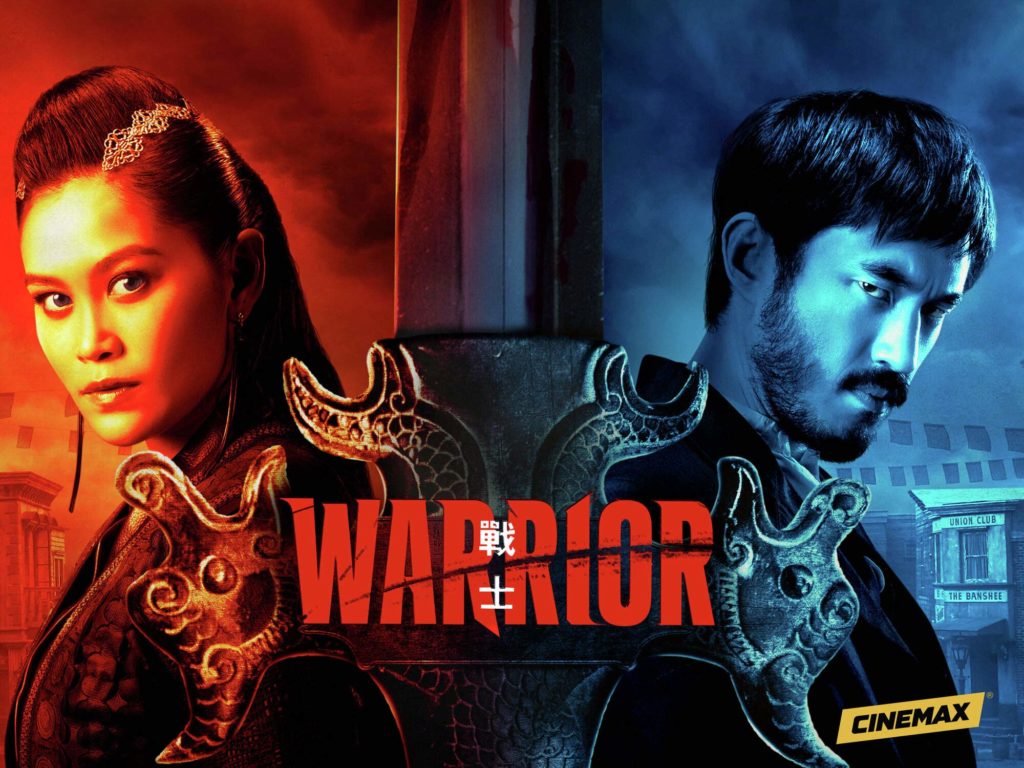
The History
Warrior goes into a part of American history that I feel isn’t dived into enough when it comes to discussions of immigration–specifically Chinese immigrants and the sex and slave work they were put through when they came to America. Though this isn’t the first time it’s been talked about, having it put in a story like this makes it gripping and entertaining, while also being serious and educational at the same time. What made the series so interesting for me and what made me tune in every episode and pay attention was the other elements they were able to put into this story with real-world history, similar to Bruce Lee’s Enter the Dragon inspired martial arts, Clint Eastwood’s The Good, The Bad, And The Ugly inspired western stories, and the mobster Goodfellas type of stories with the tongs in Chinatown.
The filmmakers are all skilled and versatile in their storytelling and it instantly ropes me in when it’s tied in with the history of Chinatown in 1878. Some of that history is very difficult to watch. Johnathan Tropper, the writer and creator of the show, really isn’t afraid to get into the ugly aspects of this history. They show innocent girls getting tortured and raped, Chinese men getting beaten by the police, and even white women getting looked down upon like they’re inferior when around a group of men or with their husbands. They have these main characters in the show live in this world, react to it, and try to find a way to cope with it. Everyone is trying to survive and even help their brothers and sisters if they can. However, this is still very much an “every man for himself” kind of world, making it so that a lot of the characters are sometimes in it for themselves and try to figure out what they can do to climb the ladder and be at the top of this corruption, greed, and power.
The Characters
The show has many main characters. Strong characters have heavy and compelling stories that all tie in with the others and impact the overall storyline. To me, that’s one of the strengths of Warrior. None of the characters in this show feel like supporting or side characters. They all feel like the lead whenever they’re on screen because all of their stories mean something. The stories have weight, and most of them all have to do with the struggles of sexism and racism at that time.
Ah Sahm
Ah Sahm, incredibly portrayed by Andrew Koji, is the first character introduced, and is welcomed into a tong in Chinatown that hold a certain amount of authority and power. Andrew Koji makes sure that you can read this character well without him even having to say anything. All the pain, angst, and suffering that he goes through is always portrayed well without words. In the series, he wants to prove himself, much like all the other characters in this show. Everyone craves, owns, or holds onto something, whether that’s authority or sheer power, and whether it’s physical because of all of the high action martial arts, or systemic because of the rival gangs and battle with police. All the characters have different ways of getting it.
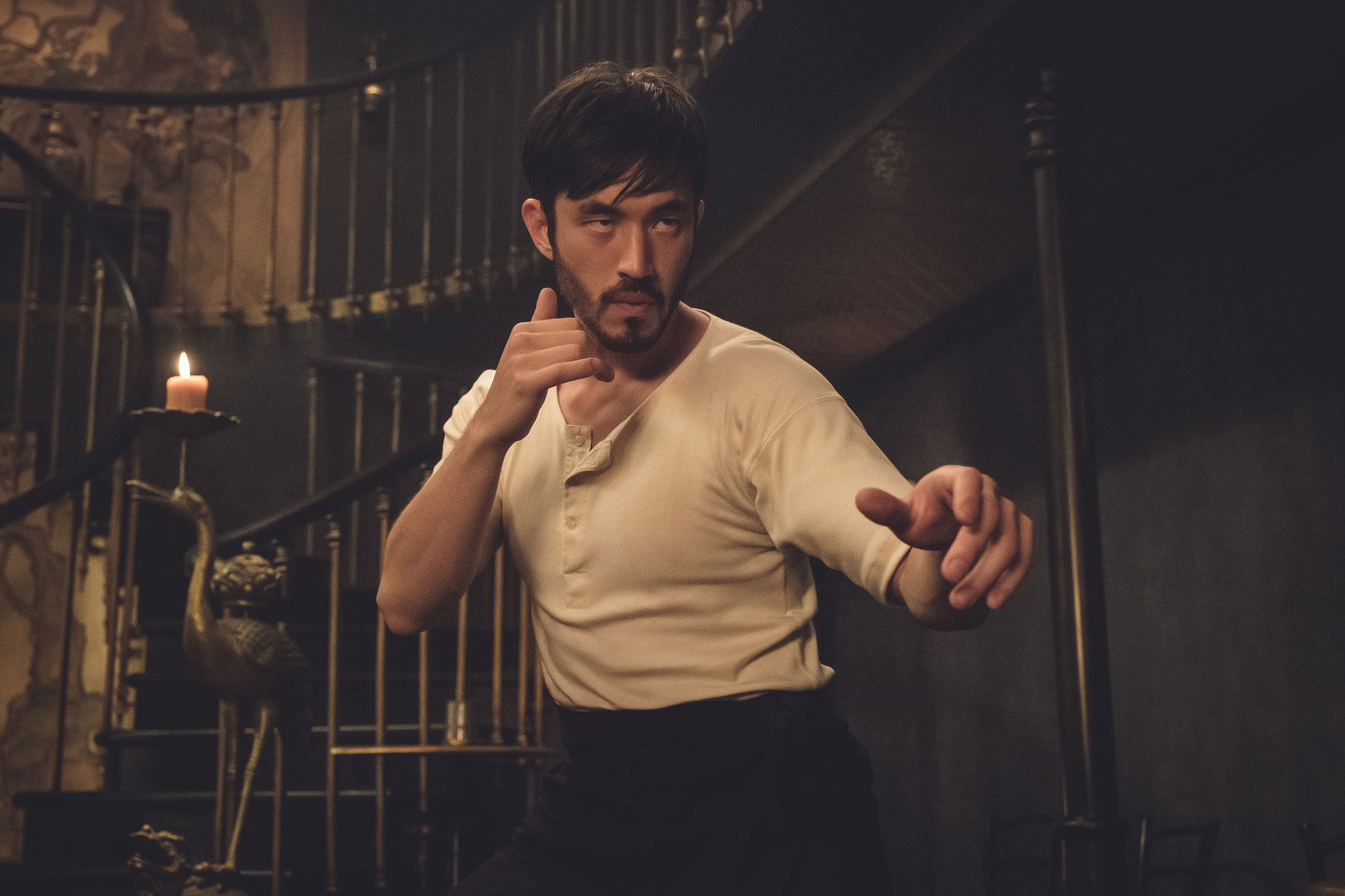
Mai Ling
Ah Sahm tries to get into as many fights as he can to show that he’s the alpha in any situation. His sister Mia Ling, played by Dianne Doan, wants to get power through another tong in Chinatown, and she battles with having newfound authority amongst gangsters and killers and being a woman on top of that. She’s the only woman in the show with that type of power in Chinatown, and carries a heavy weight on her shoulders. To me, she’s one of the sweeter characters on the inside, but cold and cutthroat on the outside, which has come with her trauma and abuse over the years in her upbringing. Now in the show, she has an opportunity to have something she’s never had before, and that’s control and power. Part of her is scared because she’s taking all that on by herself. Much like her brother, she’s also trying to prove something about her capabilities through her actions, making her and Ah Sahm similar despite always being at each other’s throats.
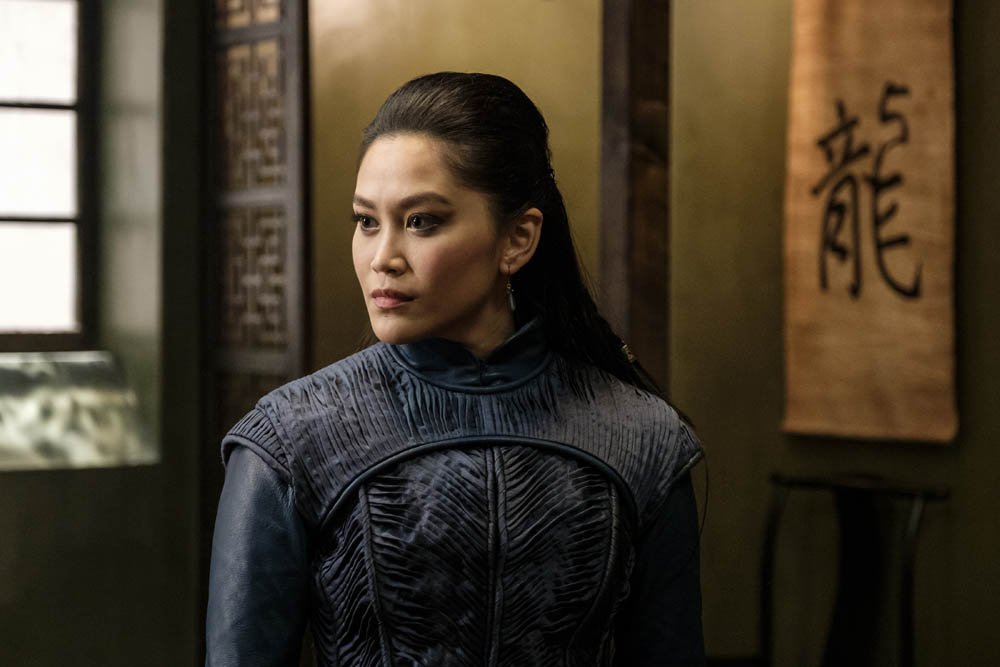
Ah Toy
Ah Toy, played by Oliva Cheng, is a club owner and has connections in the city. She helps liberate young Asian girls who are subjected to sex trafficking and takes some under her wing. She is also one of the show’s LGBTQ characters, and that’s another thing that I appreciate about Warrior. It tries to represent as much as it can, however it can, and Ah Toy’s relationship status was never prominent or a question really in season one. However, after seeing them address it in season two, they make it complex and compelling. Because she’s with a white woman, this gets complicated since people that look like Ah Toy are seen as demons and less than human. When her partner is with her, it’s always a risk to be seen. It could ruin both of them, and could ruin Ah Toy’s status in Chinatown.
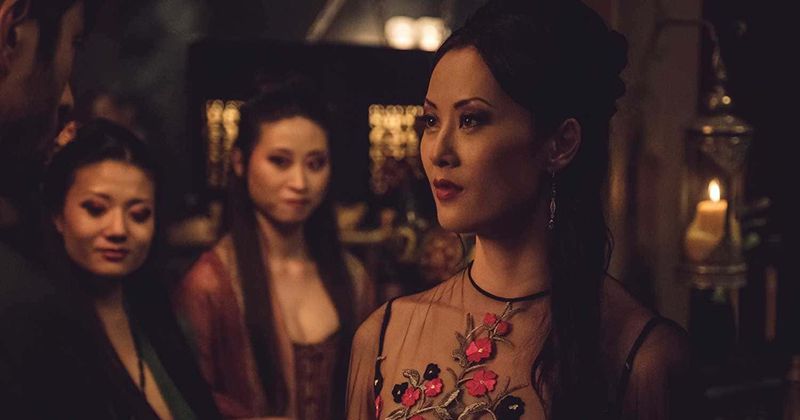
Why Do People Want Power, And What Happens When They Get It?
Some characters like Ah Sahm don’t necessarily want control. He just wants to prove that he’s the best and is just as powerful on his own. The thing about most of these characters is that what they want is for the right reasons, but it eventually turns into something more sinister. With Olivia Cheng’s character Ah Toy, she wants to save these young girls from the hell they’re trapped in, and sometimes she’s only able to do it because she’s seen as this Queen Pin in Chinatown, an alpha woman. Olivia Cheng in an interview about her character says, “for any woman to be independently wealthy is almost unheard of. For a Chinese woman to be independently wealthy is astounding.” But there’s a flip side as well. In order to conform to the surroundings and still make a living, she has to subjugate the young girls she saves through sex work in her club for all the men who come in. She does that to conform because she’s living in a time when Chinese immigrants are put through all types of slave work, even sex work. She saves so many and there’s really no “haven” to put them in within Chinatown, so she keeps them under her protection.
Dianne Doan’s character Mia Ling wants to feel strong and also wants to do what she feels is better for her people in Chinatown who are struggling like Ah Toy, even if that means killing her own people to do it. When I was first introduced to Mia Ling, I felt like she was such an innocent character even when she was trying to be tough because of the position of power she’s been given. You can still see that under all that was once a good pure person, but the control that she holds has made her feel obligated to make hard and terrible decisions. The show addresses how and why she feels the need to be ruthless and fearful too. Some of it is because she’s a woman and feels the need to establish herself every moment. Most of these characters are given a certain high status that forces them to make hard and terrible decisions, and they all do it to survive. The show dives into the flip side of that coin with the antagonists or oppressors like the cops and why they feel the need to police Chinatown and Chinese immigrants so heavily.
The Hierarchy
One of the main antagonists in this series is the bureaucracy itself in San Francisco. A lot of the state officials and cops in this show are out to cleanse San Francisco of Chinese immigrants whom they claim are taking their jobs and are the cause of crime in the city. Part of that is right, and as I’ve said previously, the tongs in Chinatown are a big part of the show. They are very powerful and problematic in Chinatown, but the Chinese only do that because it’s really all the power they can get. They feel it’s the only way to show some sort of authority and establish themselves. The cops, specifically two, are struggling on what to do through all of this, because throughout the series, the Irish gangs and the tongs in Chinatown begin to clash for power. The Irish attack because they believe the Chinese are taking their jobs and will eventually just keep taking and taking and taking, so they come to them and mob Chinatown, killing innocents. Of course, the tong retaliates. The cops in this story are on two different sides here–one where the San Francisco police expect them to kill the Chinese and detain the Irish, who started the fight in the first place, or defend the defenseless and uphold the law like they’re meant to. But that would mean more of the Irish police attacking their own since they started the fight. Of course, throughout this whole scene, the cops have absolute ZERO control, and the actors who play the cops, Kieran Bew (Bill O’Hara) and Tom Weston-Jones (Richard Lee) do a great job throughout that scene with their acting, showing them crack underneath all the chaos as the power THEY used to have with their badge is basically stripped away. Other people are too busy fighting for their own power.
The Endless Battle
The endless battle in my opinion is a perfect way to describe Warrior with just three words. What this show embodies, in a lot of ways and on a lot of levels are the battle against racism, the battle for equality, and the battle for supremacy. This show battles and juggles so many ideas both mentally and physically, and the ways they do it through the martial arts and mob shootouts are what make it fun and entertaining. Yet the themes of what they’re fighting for are what make it both grounded and serious. A power struggle just to be treated fairly as a race. Regarding the tongs, it is a power struggle just to be on top, and just in the context of the series and real life. Those battles will basically just be a dog chasing it’s tail, because it’s in human nature to be greedy and want more and be more. It’s not new, but the way they explore it and translate it through time periods and complex characters is always intrguiging and captivating to watch. For people who are looking for an action-packed martial arts/western with diverse characters and actors, Warrior is definitely something I’d recommend.
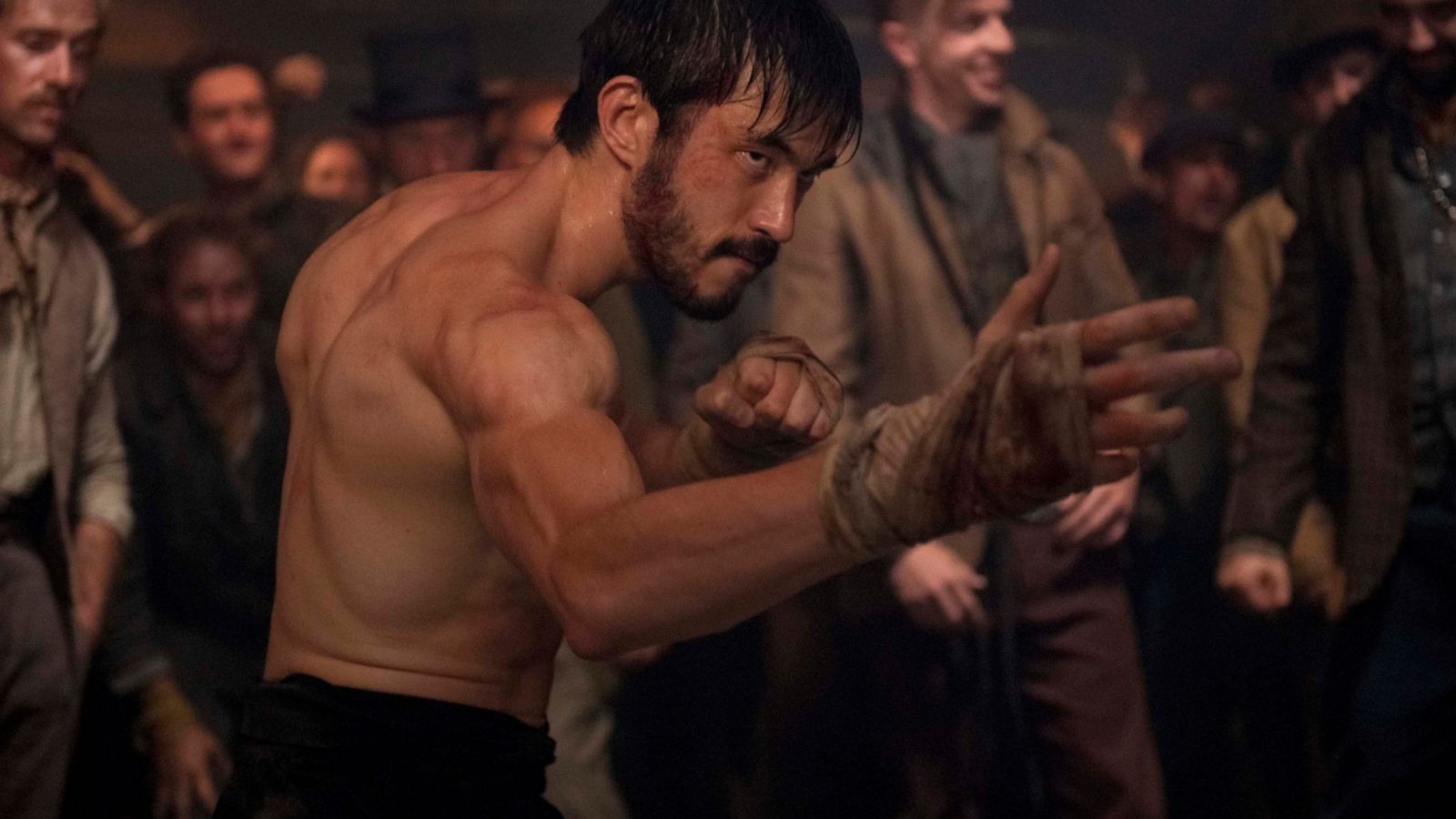
Comments